We are happy to announce the launch of a new practical course focused on short and long-read metabarcoding (using Illumina and Oxford Nanopore) and data analysis. The course is scheduled to take place at BIOCEV from November 13th to 21st and will be taught by lecturers from our department, the department of Zoology, as well as colleagues from Warsaw and Sorbonne University.
This course is designed for students in master's and PhD programs. If you or your students are interested, enrollment can be done through SiS (see the link below). Please note that the capacity is limited to 8 Charles University students.
Practical Course: Analyzing the Diversity of Microbial Eukaryotes in Environments - MB160C87
Guarantee:
doc. Mgr. Vladimír Hampl, Ph.D.
ANNOTATION
This practical course focuses on the techniques of metabarcoding the eukaryotic diversity from environmental samples using short (V4 rRNA) and long (rRNA operon) amplicons. Students will learn the pipeline from the DNA isolation step to diversity estimation and data interpretation. Students will be grouped into pairs. Over the first three days (Wednesday to Friday), 36 marine samples (frozen cells on filters) from a spatial transect of the coast of northern France will be processed, three by each pair of students. Short and long amplicon libraries will be prepared and sequenced in-house on Illumina MiSeq and Oxford Nanopore MinION platforms over the weekend. During the following three days (Monday to Wednesday), the sequence data will be bioinformatically processed to estimate diversity, which will be compared between samples and sequencing technologies.
The course can accommodate 12 students and will be held at the research infrastructure BIOCEV from November 13th to 20th, 2024. The course will be conducted in English and taught by lecturers from the Departments of Parasitology (Vladimír Hampl, Jiří Novák) and Zoology (Ivan Čepička, Tomáš Pánek, Seda Mirzoyan) of Charles University, University of Warsaw (Anna Karnkowska, Michał Karlicki, Małgorzata Chwalińska), and Sorbonne University (Fabrice Not, Lucie Bittner).
REQUIREMENTS FOR CREDITING
Finalised protocols
Presentation of the results
SCHEDULE
Wednesday, 13th of November
Introduction to the course plan, sample processing, and grouping of students
Hands-on activities:
- DNA isolation
- PCR for long amplicons
- Setting up qPCR for short amplicons
- Electrophoresis of long amplicons
- Interpreting qPCR results
Summary of the day
Thursday, 14th of November
Lecture on Illumina amplicon sequencing
Hands-on activities:
- Preparation of amplicon libraries for Illumina
- Purification of the amplicon libraries
- Measuring concentrations and quality
Summary of the day
Friday, 15th of November
Lecture on Nanopore amplicon sequencing
Hands-on activities:
- Preparation of amplicon libraries
- Loading the flow cell
Summary of the day
Social evening
Monday, 18th November
Lecture on raw data processing, OTU clustering, ASV and taxonomic annotations
Hands-on activities:
- Data quality control and cleaning
- Statistics, OTU clustering, ASV, and taxonomic annotation
- Comparison of similarity versus phylogeny (Illumina versus Nanopore)
Summary of the day
Tuesday, 19th November
Lecture on diversity analyses
Hands-on activities:
- Estimation of alpha-diversity
- PCA on environmental parameters
- Beta-diversity in our sequenced samples
- Our samples in a broader context (MetaPR2)
Summary of the day
Wednesday, 20th November
Lecture on selected protist diversity studies from marine environments
Hands-on activities:
- Finalizing data analyses, protocols, and preparation of presentations
Thursday, 21st of November
Lecture on selected protist diversity studies from freshwater environments
Student presentations of the data from the projects
Discussion
Departure





















